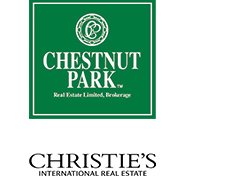Apr 04
20130
commentsBy Gary Goba
Tagsbest agent best real estate agent Chestnut Park down payment downpayment Home Buyers' Plan house HST market update mortgage real estate tips rebate rebate program rebate programs top agent toronto condo toronto market update toronto real estate market toronto real estate market update Toronto's best
Toronto Real Estate Market Update Winter 2012-2013
The Toronto residential resale market provided some intriguing data for the month of February. Looked at as a whole it would appear that it is undergoing a negative shift, the continuation of a trend that started in the second half of 2012 and has continued into this year. On closer inspection we see a fragmented market, with some sectors as robust as the record breaking pace of early 2012, and others clearly lagging, dragging the overall performance of the market into negative variance territory.
In February, 5,759 properties were reported sold. In 2012, 6,809 properties were reported sold by the Toronto Real Estate Board, a decrease of more than 15 per cent. Notwithstanding the decline in sales compared to last year, the average sale price increased, but more moderately than recent months. Last February the average sale price came in at $500,249. This year it increased to $510,580, an increase of 2.1 percent. Increases over the past few months have been in the 5 to 7 percent range.
Interestingly enough, the sales that were recorded took place at a pace normally associated with very robust markets. In February all reported sales took place in 28 days (on average) after they were listed. Any time the average days on market is less than 30 days it reflects a seller’s market, which is ironic in light of the fact that compared to last year, the market was off by more than 15 percent.
Last year, when the market was on pace to smash all previous records for sales, the average days on market was 24 days. A deeper analysis of the market indicates that some sectors and housing types are more robust than others. The high-end, or ‘luxury’ home, market is showing weakness compared to last year. Similarly the condominium apartment market is lagging compared to 2012.
In February 2012, 407 properties having a value of $1 Million or more were reported sold. This year that number declined to 334, a decline of 18 percent. The decline in the very high-end properties, having a value of $2 Million or more, has been even more dramatic. Last year 69 properties in this category were reported sold. That number declined to 50 this year, a decrease of more than 27 percent. This decrease has an obvious impact on the monthly average sale price.
It is difficult to pinpoint why this area of the marketplace is not performing well. One explanation is that buyers can no longer obtain a high ratio mortgage on properties with sale prices in excess of $1 Million. It might also be that the value of high-end properties, particularly with values in excess of $2Million, are no longer supportable. During the robust market between the spring of 2009 and last year, prices of high-end properties were strong. Perhaps they pushed the limits that the market could bear. With a second land transfer tax, purchases in excess of $2 Million become quite onerous. For example the combined provincial and municipal land transfer tax a buyer of a $2.5 Million property pays is an outrageous $92,200.
The other sector that is lagging is the condominium apartment sales. I do not believe, as is often reported in the press, that this is primarily due to an overwhelming increase in inventory. In the Toronto (416) marketplace, sales in February were down by 20 percent. Average sale prices declined by 4.7 percent. On average it took 36 days for a listed condominium apartment to sell, 33 percent longer than all properties in Toronto. Detached and semi-detached homes in Toronto sold very quickly, as low as 15 days in Toronto east end districts to 20 days in Toronto’s central districts. In comparison, condominium apartment sales are at best tepid.
Condominium apartment inventory has not increased dramatically compared to last year. The total number of condominium apartments available for sale in the Greater TorontoArea (416 and 905) was 5,458. Last year there were 5,066, an increase of slightly more than 8 percent. In the city, where the bulk of condominium apartments is to be found, the increase is less dramatic. Last year there were 3,712 available for sale. In February of this year there were 3,785, an increase of a mere 73 additional condominium apartments. Considering that sales are off by 20 percent, inventory levels have actually declined. It may be that we will see inventory levels grow as we proceed through the year, but it has not happened yet.
So the reputed cause for the slow down in condominium apartment sales cannot be attributed to higher inventory levels. Rather it is not doubt due to the restrictive mortgage lending rules that the federal government has implemented. Condominium apartments are usually the first and only choice for first time buyers. In the city of Toronto (416), the average sale price in February was only $352,614. There are reports that indicate that 17 percent fewer buyers qualify under the new stricter lending guidelines. A number that is not inconsistent with the 20 percent decline in the condominium apartment market in 2013.
Prepared by: Chris Kapches, Senior Vice-President and Legal Counsel
February 2013
1300 Yonge Street, Suite 100 Toronto, Ontario M4T 1X3 • P: 416.925.9191 • F: 416.925.3935




